---------------------------------------------------------
According to the CDC (Center for Disease Control), Salmonella is one of the most frequently reported food borne illnesses in the US. Salmonella is a bacterial disease that lives in the intestinal tracts of animals (including humans & birds). Approximately 380 people die annually in the United States from the disease which can cause vomiting, diarrhea, fever, and severe abdominal cramps.
Is Salmonella something you should be concerned about if you keep backyard poultry? Yes. Is it a reason not to keep them? Definitely not! As long as you are keeping a clean coop and use common sense, I think keeping backyard hens actually can lower your risk of Salmonella poisoning.
Do all chickens have Salmonella?
No! According to recent government data, 98.5% of whole chickens processed at large plants were found to be free of Salmonella (source). Many chickens sick with Salmonella will not show any symptoms, making it difficult to judge if your chickens are safe. If the disease worsens, the bird will be weak with watery diarrhea and have a bluish comb. Many chickens can carry a small bacterial load without any ill effects. Although other types of poultry are common carriers of Salmonella, chickens are the most likely to have it.
Chickens living in factory farm conditions are much more likely to have diseases, including Salmonella, than a backyard flock. These chickens are cramped into tiny cages where they have no choice but to step in feces and sometimes on other dead birds left in their cage.
There is a higher likelihood of rats in factory farms, whose droppings also can contain Salmonella. The rodent droppings can then be eaten by the chickens or contaminate newly laid eggs.
The close living conditions stress their immune systems leaving them open to disease. You know exactly what is going on in your backyard coop, can you say the same for chicken factories?
Most backyard chicken keepers are great at cleaning the coop & nest boxes regularly, giving their chickens plenty of room to roam, and dealing with rodents. click here for tips on eliminating rodents Personally, I feel like the eggs I get from my healthy, happy, backyard hens are far safer to eat than the ones I could get at the grocery store.
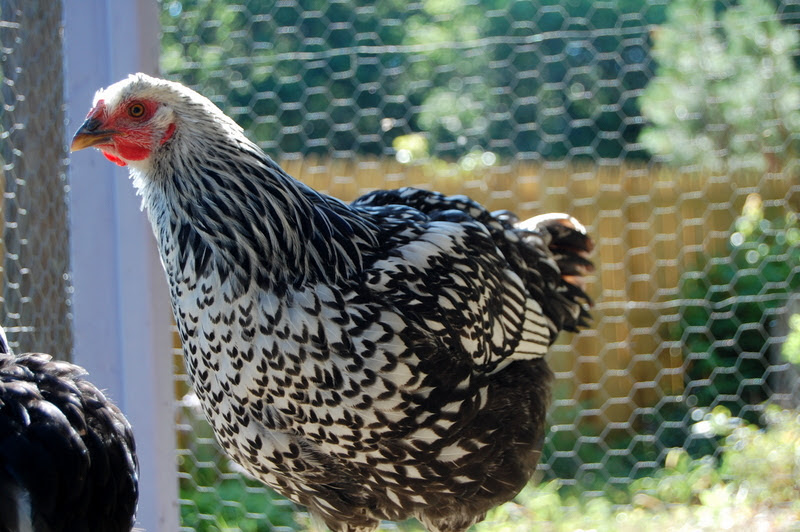
How do humans contract Salmonella?
Live poultry – chickens, ducks, geese, & turkeys – are often carriers of Salmonella. You can’t catch it like you would catch the flu. Just being in the proximity of your birds is not going to make you sick. Salmonella is a type of food poisoning, so the germs need to somehow get inside you, usually by eating infected foods.
Salmonella is generally contracted from eating contaminated undercooked meat or eggs. There is also a chance you could contract it by coming into contact with infected droppings & transferring the germs to your mouth. Cleaning the coop, walking in the run or where your birds free range, or handling your chickens (who step in their feces) could all potentially put you in danger of contracting Salmonella.
A “huge spike” in contact related Salmonella?
Online articles enjoy flashy headlines like “Backyard Chicken Keeping Causes Huge Spike in Salmonella”, which can make people second guess keeping poultry in their yard. In doing research, I came across the same info-graphic dozens of times from the CDC which says since 1990 there have been 65 outbreaks of Salmonella with 3,796 illnesses, 661 hospitalizations and 6 deaths from Salmonella linked to contact with live poultry (as opposed to by eating infected foods). There is a graph that shows a huge spike in reports particularly in the last 15 years. Those numbers are sad and unfortunate, but let’s look at them critically.
The huge increase in the popularity of keeping chickens and ducks within the past decade mean that the number of people exposed to live poultry has increased exponentially. Of course the number of Salmonella cases is going to increase. Before keeping chickens, my only contact with live poultry was looking at them in cages at the County Fair each summer, so my chances of contracting salmonella from live poultry was basically zero . Now I have daily contact with them, so of course my risk is going to go up. While it is tragic there have been 6 people that lost their lives due to contact with live poultry, when compared to the 380 people that die annually in the US from Salmonella food poisoning, it is a really small percentage, even though it is technically a “huge spike” over 15 years ago.
Salmonella is not always linked to poultry
Salmonella outbreaks are usually linked to under cooked meat or eggs. In the past several years there have been major outbreaks linked back to various food products including cucumbers, peanuts, tuna, pine nuts, pomegranate, cantaloupe, celery, peppers, and spinach. These non poultry products are generally contaminated by rodent droppings in the factories or farms where the food is grown or processed.
People at the highest risk
You can contract Salmonella by having the germs on your hands and then transferring it to your mouth. This obviously puts small children in a high risk category because they put their hands in their mouths often. They also spend time crawling on the floor where the germs could have been tracked inside. Other at risk people would include the elderly, pregnant women, and anyone with a compromised immune system. While most healthy adults will fight off a Salmonella infection with just a miserable day or two in bed, it could put people in the high risk category in the hospital.
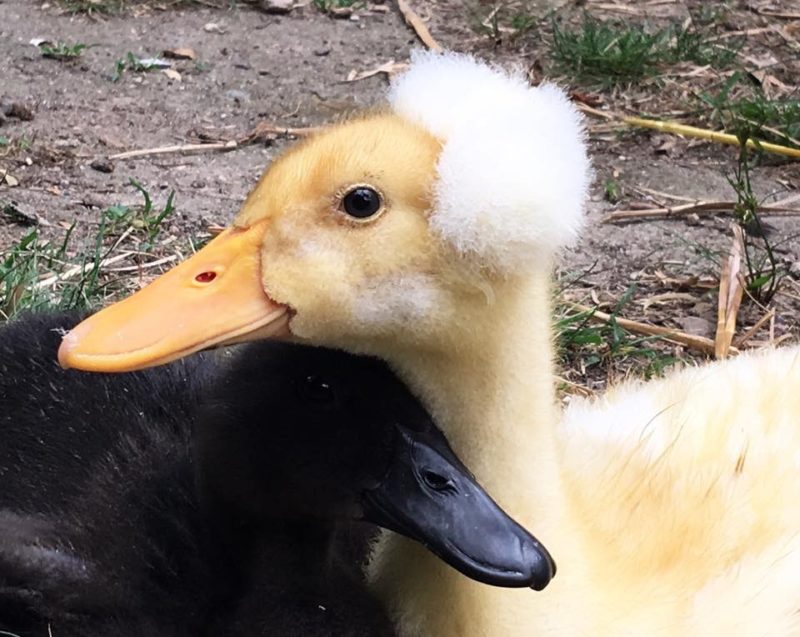
How can I reduce my risk of Salmonella poisoning?
- The best way to prevent Salmonella when you are a chicken keeper is to wash your hands. Plain & simple! Anytime you have been cleaning the coop, handling your chickens, eggs, or chicken keeping tools you should immediately wash your hands with soap and running water. If that isn’t available, alcohol based hand sanitizer will do, but soap & water is preferred. Be sure to supervise young children when they are washing up after doing the same.
- Have coop shoes and don’t wear them in the house. Keep a spare pair of shoes outside (in a garage, shed, or in the coop if you have a storage area) for each person that does chicken chores. Wear these shoes anytime you are cleaning, going in the coop to collect eggs, filling feeders, or being in an area where your chickens free range. Avoid wearing these shoes in your house so that you don’t track any germs in the house. In the same light, don’t bring chicken equipment like buckets or feed bins inside to wash them. Do this outside if at all possible.
- Don’t eat or drink in areas where your birds live. If your bird free range, keep a cover on patio furniture and picnic tables when not in use. Even better, set up separate areas in the yard – one for humans and one for chickens.
- Keep your coop clean! Regularly clean the coop, floor, nest boxes & roosts with a vinegar solution (click here to make your own)
- Don’t let chickens in your house. I know they are cute, but it’s better for everyone if they stay outside. If you must bring one in to treat a wound, care for an ill animal, or when you are raising chicks in a brooder, be sure to disinfect the area regularly. Don’t let them in areas where you prepare or serve food. If possible, house them in a basement or garage.
- Exercise caution when letting children under 5 or adults over 65 handle birds. Be sure children are washing their hands very well and teach them to keep their hands away from their face while holding the birds. If you have someone with a compromised immune system living with you, I would recommend keeping them away from the live birds.
- Don’t kiss or snuggle birds to your face. I know, trust me, I know! They are so darn cute, especially when they are babies, that you just want to hug them close! But more often than not, chickens will show no outward sign of illness when they are carrying Salmonella so you have no way of knowing if your chicken is a carrier. Keep those germs far away from your mouth & eyes. Even new baby chicks can be carriers of Salmonella. In 2014 there was a pretty severe outbreak of Salmonella among chicken keepers that was traced back to a single mail order chick hatchery.
- Take good care of those eggs. Collect them often so they aren’t sitting in the coop where they could get dirty. Throw away any egg that has a crack in it. Wash eggs in warm, running water and store in the refrigerator until ready to use. Wash your hands after collecting them. Eggs that are really caked with mud or feces are better off tossed in the compost bin or used for animal food. Be sure to cook your eggs (and meat) thoroughly before eating to destroy any bacteria.
Bottom Line
You don’t have to be scared your chickens will give you salmonella poisoning as long as you follow some common sense rules of hygiene and coop maintenance!
Want some more information to keep yourself safe from salmonella? click here to check out Wildlife Removal’s guide to transmittable animal diseases
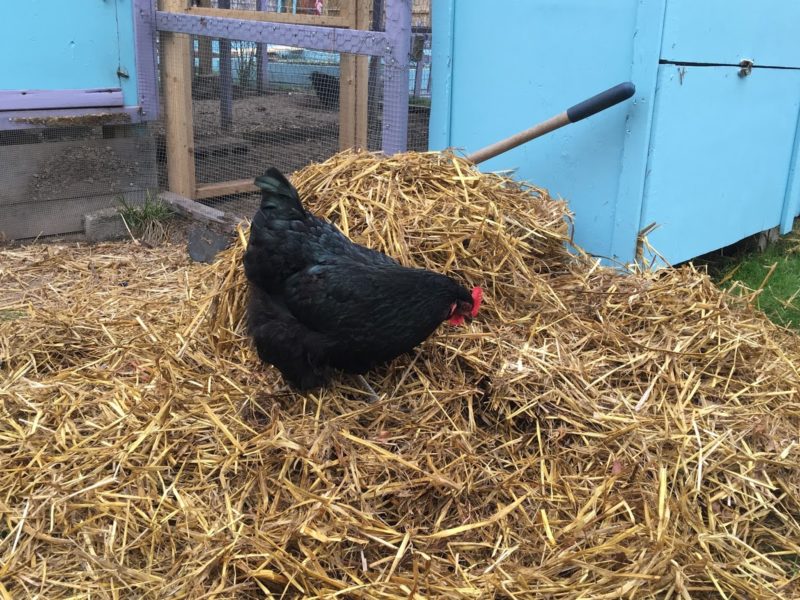
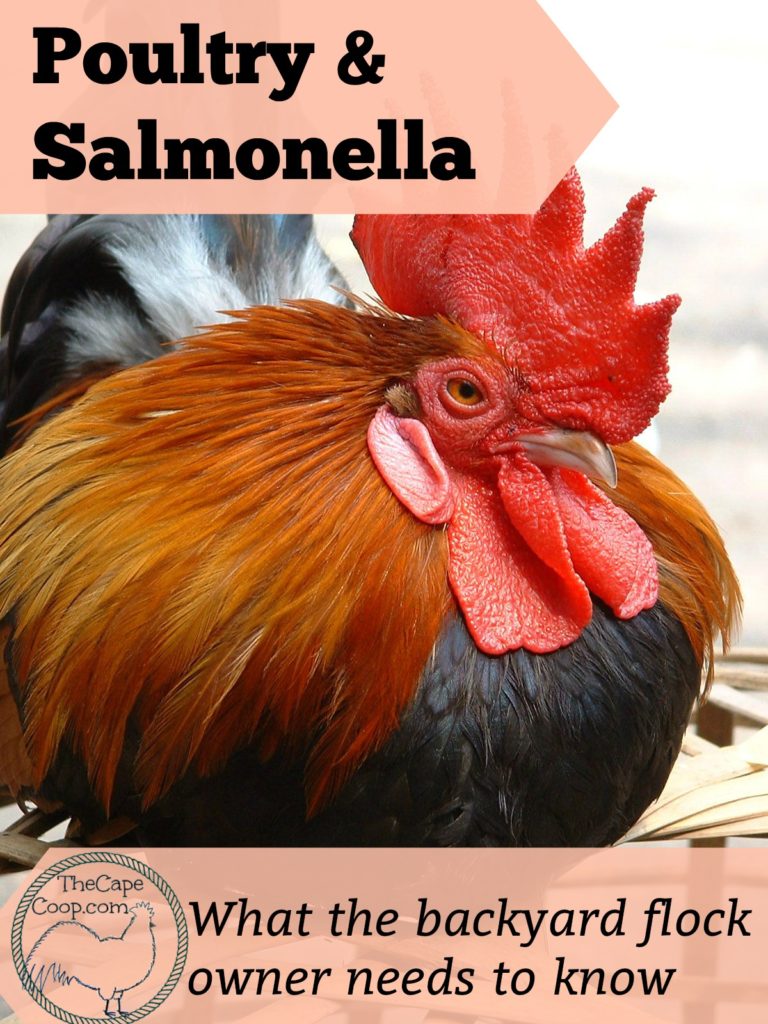



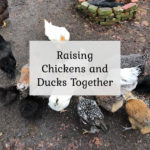


Tanya
Friday 28th of June 2019
Hi there! I always follow your posts, thanks for everything you type. I this morning clumsily fell into my ducks pond. It was "fairly" clean since we only have 3 ducks and it was cleaned yesterday. However I got the water in my eyes. Should I be concerned? I washed my face, and flushed my eyes well, but do you know if theres anything I can contract from that?
Liz
Monday 1st of July 2019
Oh no! I think you should be ok, but certainly just be vigilant about your eyes. Look for any redness, puffiness or stickiness. If you have any saline solution, I would rinse your eyes a couple times a day for the next day or so just to be on the safe side. But most likely you will be totally fine!
Carol L
Friday 16th of February 2018
I have a question regarding using chicken feet in bone broth: since the feet are so 'dangerous' as they come in contact with all the poop and all other things, how do you 'sanitize' them without cooking away all of the good stuff that makes bone broth so healthy? Just wondering!
Liz
Friday 16th of February 2018
Hi Carol, when making chicken feet broth, the first step is to boil the feet and then peel off the skin before using them in broth. The skin not only would be the dangerous part, but also can give the broth a funky taste